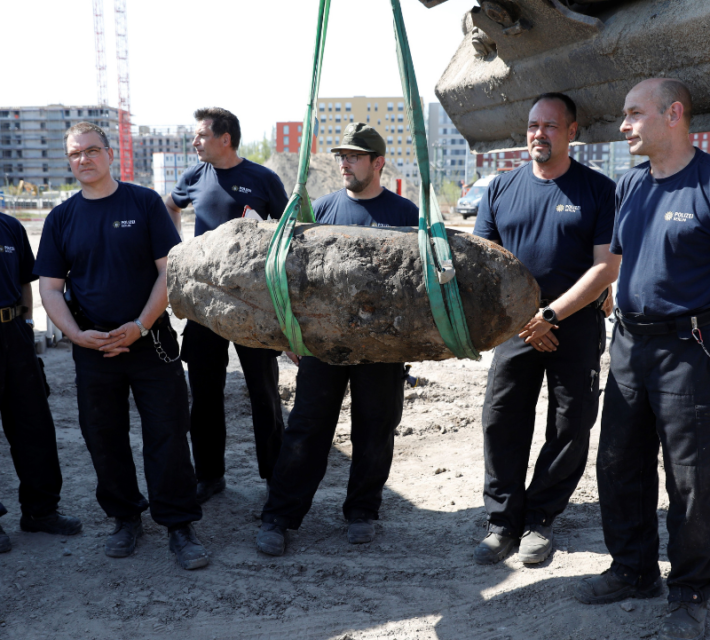Cleaning up after a war has occupied many governments and volunteer organizations across the world, from mine clearance in Vietnam to European bomb disposal squads. In Germany, the work of munitions clearance and destruction has been going on since the day after WWII’s VE day in 1945.
Munitions clearance is never a boring job
More than 75 years later, this issue continues to be a problem for the German authorities. The existence of dangerous WWII relics in Germany is never far from popular consciousness, and so recently, in Southern Bavaria, close to the borders with Austria and the Czech Republic, another report was sent through to the local police bomb squad.
A jogger, out for a run through the forest surrounding the town of Passau, reported seeing a suspected WWII hand grenade abandoned in a plastic bag. The city is equidistant between Munich, Vienna, and Prague, a region that saw many clashes during WWII.
The bomb squad rushed to the scene, fearful of any possibility of casualties but well drilled in the discovery, handling, and control of WWII ordnance. After cordoning off the area, the team approached the bag with all due caution.
Upon inspection, the team was relieved to discover that the suspect item was not an abandoned grenade dating from the Second World War, but a far more recent product of a burgeoning adult toy industry. Corroboration came in the discovery of condoms and specialist lubricant also found in the bag.
In a statement, Passau police said that “an internet search confirmed the suspicion (that) there are actually sex toys in the form of hand grenades,” and that the “hand-grenade” was, in fact, made of rubber.
Video: Germany still detonating WWII bombs, 70 years after conflict
Passau is known locally as the “city of three rivers” and is where the Danube meets the Inn and the Ilz. During WWII, it was the site of three sub-camps of the Mauthausen-Gusen concentration camp, the largest complex of labor camps in Nazi Europe. Most historians put the death toll at more than 300,000 people across the hundred or so sub-camps that operated throughout the region.
Adolf Hitler also spent his early years in the city with his family, up to 1894, when he was 5 years old.
Unexploded ordnance has caused problems in the past
This is far from an isolated incident. In the final year of the war, millions of tons of bombs were dropped across the country, and city center redevelopments are regularly halted when an excavator uncovers unexploded WWII ordnance.
At the same time, WWII memorabilia remains popular, and equipment and weaponry from the era regularly come up for sale online and in local markets.

In 2017, a man from the town of Hennef, a few miles south of Cologne, Germany, caused 70 people to be evacuated from their homes when his collection of WWII grenades began going up in smoke. The 51-year-old collector had bought a crate filled with unused grenades at a flea market.
He added them to his collection, stored in a garage next to the home he shared with his elderly parents, but the conditions for storage were not ideal, and in the heat of an early summer, the grenades became unstable and exploded, causing other deadly items in the collection to also detonate.
More from us: Hidden WW2 Bombs Still Causing Fatalities Today – Are They Classed as a WW2 Casualty
When emergency services arrived at the scene, the garage was ablaze with further explosions continuing, flames leaping through a massive hole in the roof of the structure, threatening nearby properties. Once the blaze had been controlled, a specialist munitions clearance unit was called in to clear the near-demolished building, and all remaining ordnance was taken away and disposed of.
The collector faced serious charges of endangerment and violating Germany’s strict weapons laws. This case highlighted the fact that there remain a high number of functional guns, grenades, and other items in the collections of people who do not recognize the dangers such a collection can pose.
